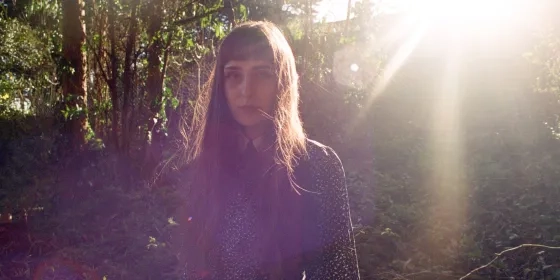Nicole Rowe ’22 on songwriting
The technology and applied composition student talks about overcoming writer’s block during the pandemic and expanding her voice at SFCM.
In her own words, Nicole Rowe (MM ’21) discusses how her songwriting skills have evolved at SFCM.
I got my start in songwriting. At first, I was afraid of expressing emotion explicitly within my writing. So I sang in French. But as I got older, I began feeling that it makes sense for other people to be able to relate to what you write, so I started using English too. When I started composing, I had this specific sound and all these techniques and tools that I would use. It wasn't until my freshman year of college that Daria Novoliantceva, an SFCM TAC teacher, said, “Nicole, you need to do something else. This sounds good, but it's all the same and you're just rewriting the same thing over and over again.” That scared me. I thought, “I need to completely reinvent myself.” Her advice helped immensely. Now I still have my own sound but with much more flexibility.
Since the pandemic, I've had a hard time with writer's block. I draw from personal experience and I wasn't really experiencing anything–just sitting at home. I didn't want to write something about the pandemic and I didn't feel I was the right voice for that. I began reading books and poetry by authors like David Berman, Frank O'Hara, and Haruki Murakami. The way that they write in such a casual way about events and the world around them, made me start writing in a way that was about things that didn't necessarily happen to me, but instead that I was feeling–potential situations as if I'm on the outside looking in.
I ran into this situation when I was doing a film score over winter break. It was about a friend's journey of gender expression to realizing they were non-binary. I am cisgender, so I can't understand what it must have been like. There was a lot of conversation and a lot of interpretation based on the emotions that they gave me and the music that they gave me to listen to. I would ask them, “Hey, I don't really understand what the scene is supposed to feel like, emotionally. Can you tell me a little bit more about that and a little bit more about the sounds that you associate with these emotions?” They would explain that to me. I was able to write the music in a way that felt true without trying to take over the scene too much.
Follow SFCM on Instagram for more personal stories from across the Conservatory community.
Get to know SFCM’s technology and applied composition program.
